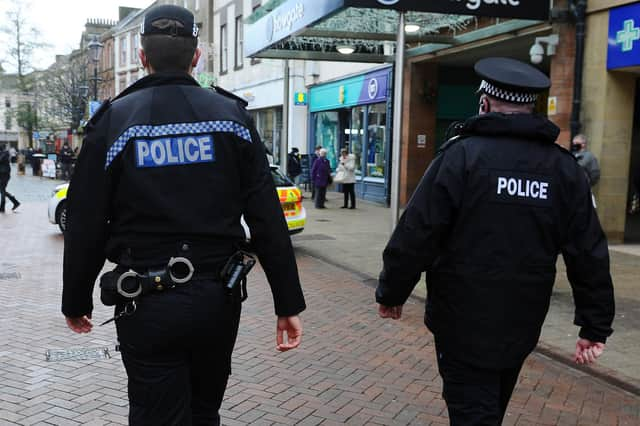Police Scotland: 'Government's lockdown guidance was extremely challenging'


Calum Steele, general secretary of the Scottish Police Federation, also told MSPs at the Scottish Government’s Covid-19 committee that coronavirus testing within the police force is still not sufficient, putting officers and their families – as well as the general public – at risk. He added that specific types of training to deal with major incidents and events was “being hindered” by the virus and said that mass vaccination of officers would allow the force to return to normal business.
Mr Steele said the speed and frequency at which legislation was changing was difficult for officers and said detailed guidance on issues such as frequency of exercise was not put down in law, which was “incompatible”.
Advertisement
Hide AdAdvertisement
Hide AdHe said: "I’m not sure I would take the view that much of the guidance that accompanied the legislation did, in fact, accompany the legislation. The guidance frequently went beyond what the legislation provided.


“That was enormously challenging for the police service."
He pointed to the example of how long people were allowed to exercise during the first lockdown.
He said: “For a long period of time and to some extent, it still prevails, there is genuine confusion amongst the public who our members interact with about what it is that they are meant to be doing. It is up to parliamentarians to decide whether we want to be enforcing the will of ministers.”
He said whole-country legislation, such as the universal “stay at home” order, was easier to police.
Advertisement
Hide AdAdvertisement
Hide AdHe said: “There could have, I believe with, with a fair degree of confidence, been put in place a legislative framework that was capable of responding to events as they arose rather than having to deal with them through emergency legislation. We were often are often chasing the outcomes rather than rather than dealing with dealing with them in advance.”
He called for police officers who are put into high risk situations, such as breaking up an illegal mass gathering, to be tested. He said a regular testing regime, such as those applied to teachers, should be considered but added that front line officers at risk should be prioritised.
He said: “I do think that the exposure to police officers and by extension thereafter, to the general public, as well as the police officers’ family, that could have been mitigated more with more strident and more frequent testing.”
Mr Steele said the police service did not look to be “overly punitive” to officers when they got it wrong and was happy to “put its hands up” and withdraw or rescind penalty notices and issue apologies to people who were wrongly penalised.
Advertisement
Hide AdAdvertisement
Hide AdHowever, he admitted that there had been inconsistency in how certain events were policed throughout the pandemic.
Covid-19 committee member, Green MSP Mark Ruskell, said that routine asymptomatic testing of police officers should be rolled out.He said: “It is very concerning that police officers who are engaging with the public who are placing themselves in danger during this pandemic do not have that reassurance.”